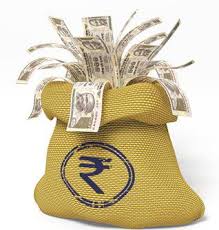New Delhi: Has the note ban actually cleaned up dirty dealing in the Real estate market? Some believe so! Anyway, half the potential buyers for apartments and such have disappeared! A Gloomy time for real estate barons! But the feeling is that the sector has been forced to ‘clean up’.
The Property market, long considered a black money safe haven, seems to have taken a big hit from demonetisation. Developers say their sales have dropped by about 50 per cent in the last three months and are pinning their hopes on buyers coming to market with ‘white money’.
The ‘genuine buyers’ in the residential market appear to be holding back their purchase plans, hoping that interest rates will fall, and that property prices would plunge. Some see this as a ‘cleansing’ of a sector infested with illicit funds.
As per the industry data, the secondary or resale market, where maximum black money typically gets parked, has been worst-affected as transactions almost dried up, barring some interest in marque properties, due to paucity of cash after scrapping of old Rs 500 and Rs 1,000 notes.
The registration of properties also saw a decline. In the process, developers are estimated to have incurred a revenue loss of Rs 22,600 crore because of the cash ban while state governments suffered a notional loss on stamp duty of Rs 1,200 crore, as per property consultant Knight Frank India.
Top officials of several developers across the country — from Chennai to Kolkata, from Hyderabad to Pune and Mumbai to Bengaluru and entire national capital region — admitted that the market took a big hit post demonetisation though they foresee significant long-term gains, expecting all future deals to be through banking channels.
However, many developers and property consultants also said it is too early to say that black money has been completely eliminated from the sector though it has become exceedingly difficult to execute cash transactions as of now.
They feel that demonetisation, along with the new real estate regulatory Act and the Benami Properties Act, would help in eradicating the practice of parking black money in real estate to a great extent and improve the industry’s image.
States are yet to revise guidance values or circle rates post demonetisation, but may have to soon consider lowering the rates to reflect market sentiment.
“Property sale, in both primary and secondary markets, were affected during November-December due to demonetisation as consumers postponed their buying decisions not only in real estate but across all the sectors,” realtors’ apex body CREDAI President Getamber Anand told PTI.
Sales in the primary market have started to improve, with banks lowering interest rates on home loans, he said, adding that it will take some time for revival in the secondary market where buyers need to reengineer investment strategy.
Top developer DLF’s CEO Rajeev Talwar said the real effect of demonetisation will be that secondary sales would also become like primary sales and transactions will happen through banking channels.
“Real estate will become totally transparent,” he added.


